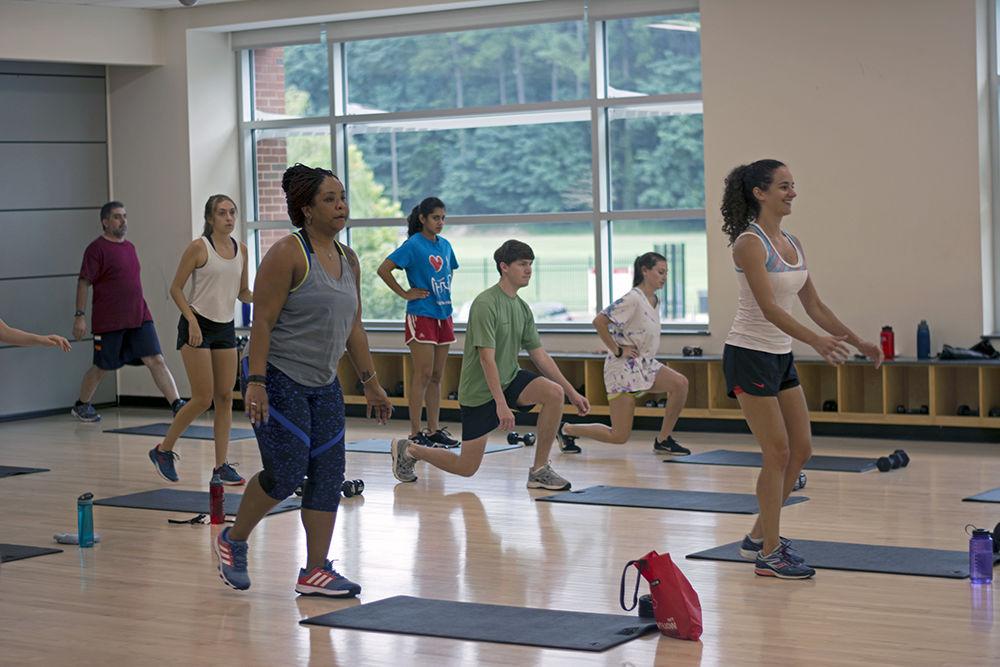After changing its name this summer, University Wellness and Recreation, along with campus partners, has begun making strides to promote not just student health, but also day-to-day well-being on campus.
Previously known as University Recreation, University Wellness and Recreation (UWell) administration changed its name in early July. According to Shannon DuPree, director of wellness at University Wellness and Recreation, the university has been moving towards efforts of promoting a holistic view of wellness for about three years, which prompted the change in name.
“Now more than ever, our students are in need of holistic care because no one person can have all the answers for stress,” DuPree said. “Counseling is great, but it provides you with that one outlet. It really takes all of us working together, pulling our resources together, our time, our talents, our expertise, in order to meet the needs of our student body.”
UWell has been making strides to promote overall student well-being through their social media Move30 campaign and offering services like wellness coaching.
“We obviously have outdoor adventures,” DuPree said. “Sports programs, over 100 group fitness classes offered every week, personal trainers, and then we also have wellness coaching.”
According to DuPree, UWell has been collaborating with a growing list of campus partners on the wellness initiatives, like Student Health Services, NC State Dining, NC State Counseling Center, student community centers, OIED and more.
Student Health Services also collaborates with the campus partners to promote health and well-being on campus. Dr. Julie Casani, director and medical director for Student Health, said that the department focuses on preventing illness.
“Obviously Student Health Services specifically works on many of the body part of the mind- body connection,” Dr. Casani said. “We work a lot on preventing illness, taking care of acute and chronic illnesses and then working on how does the mental behavioral aspects of [health] play into the physical illness model.”
According to Dr. Casani, Student Health works with UWell on many different programs, including one called Exercise is Medicine, which looks to assist students with their physical and mental health.
“We have students that we may realize that exercising is very much a part of their therapeutic plan,” Dr. Casani said. “So, Wellness and Recreation has helped by establishing a program where you can go in and talk to a recreation counselor who is educated in this and then develop an exercise program that compliments, and is sometimes the only treatment that we have recommended at Student Health.”
Student Health, like Wellness and Recreation, also coordinates with NC State Dining to promote wellness initiatives like connecting students with dieticians for specific dietary needs.
According to Lisa Eberhart, director of nutrition and wellness at NC State Dining, NC State was named in the top 26 healthiest college campuses last year and a big attribution to this is that the university has committed to helping students have access to healthy options.
“We have a commitment from the upper management of Dining, definitely a solid commitment,” Eberhart said. “But also from the university in general that we want to impact people’s health positively and one of the ways you can impact people’s health positively is to impact their food choices.”
NC State Dining collaborates with University Wellness and Recreation through initiatives like the Howl and Run, and most recently through plans for the teaching kitchen that will be included in the new Carmichael renovation. Dining currently holds cooking classes for students.
“We like to teach people to cook,” Eberhart said. “We work with our chef to teach people to cook because that’s a really important health aspect. If you don’t know how to cook, you’re relegated to eating fast food or [a] frozen prepared dinner, but if you know how to cook, you can eat better.
DuPree said that the University’s wellness partners will be working on a NC State Wellness Strategic plan in the future, as well as continuing to listen to students’ needs and developing programs to ensure students are equipped to continue wellness efforts after they graduate.
“The skills that you learn here transcend NC State,” DuPree said. “So, no matter where you go, hopefully you learn how to be well, how to take care of yourself, how to manage your time and your stress, and you learn the importance of relationships and well-being.”
Students who want to get involved in some of the campus wellness initiatives can visit the Wolfpack Wellness website.








